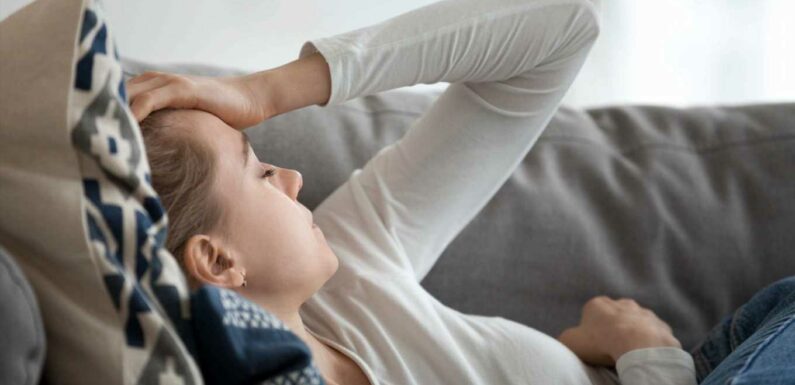
A PSYCHOLOGIST has revealed three things people commonly get wrong about depression.
Depression affects millions of Brits every year – and throughout their lifetime.
Three in ten people are diagnosed with it every week in England alone, according to Mind.
But misconceptions about the condition are still widespread.
Dr Julie Smith, a psychologist from Hampshire, England, shares educational videos on mental health on social media.
In a TikTok video, she revealed three things people tend to get wrong about the debilitating condition…
Read more about depression
Warning to anyone suffering with depression over risk of deadly complication
Where you live can increase your chance of depression – are you at risk?
1. Depression is not just about low mood
Some common symptoms of the mental health condition include feeling down, empty and taking little pleasure in activities you'd usually enjoy.
As such, one of the common misconceptions is that, if you suffer from depression, you only feel low.
But that's not always the case, Dr Julie said: "Depression is not just about feeling flat and low in mood.
"Lots of people don't realise that it's common to experience lots of anxiety when you're depressed."
Most read in Health
I'm a urologist – here's how we determine if you're a grower or a shower
From painful sex to stubborn belly fat, Dr Jeff answers your health questions
My unborn baby kicked my gastric band off before I got devastating diagnosis
I'm an osteopath – here's 5 ways to cure your headache WITHOUT painkillers
Mind said this is common too.
The charity explained you might also feel restless, agitated and struggle to eat and sleep when going through depression.
In fact, about eight in 100 people in England get a diagnosis of mixed anxiety and depression every week.
2. Depression can be physical
Depression doesn't just affect you emotionally.
Dr Julie said: "Depression is not just psychological – it's also physical."
Sometimes, the first thing you'll notice is a lack of energy, she explained.
But it can go further than that.
You might also experience aches and pains that just don't seem to have a clear cause, Dr Julie said.
As a result, experts believe that depression can make you feel pain differently than other people, and being depressed can also make chronic pain you might experience worse.
You might experience:
- muscles aches and joint pain
- back pain
- headaches
- chest pain
According to the NHS, you may also experience:
- moving or speaking more slowly than usual
- changes in appetite or weight (usually decreased, but sometimes increased)
- constipation
- unexplained aches and pains
- lack of energy
- low sex drive (loss of libido)
- changes to your menstrual cycle
- disturbed sleep – for example, finding it difficult to fall asleep at night or waking up very early in the morning
3. Depression vs sadness
Finally, Dr Julie stressed: "Depression and sadness are not the same thing.
"Sadness is just one of the many symptoms of depression."
It's normal to feel sadness and usually it can pass in a moment, but depression can be longterm, she explained.
However, if feelings of sadness don't pass and they interfere with your life and normal function, this could a sign that you're depressed.
Common symptoms of depression include feeling:
Read More on The Sun
I caked my face in makeup for my passport – people say customs won’t let me in
Couple add £180k to the value of their home spending £6k in the process
- down, upset or tearful
- restless, agitated or irritable
- guilty, worthless and down on yourself
- empty and numb
- isolated and unable to relate to other people
- finding no pleasure in life or things you usually enjoy
- a sense of unreality
- no self-confidence or self-esteem
- hopeless and despairing
If you or someone you're with is in any danger related to mental health, call 999.
YOU’RE NOT ALONE
If you, or anyone you know, needs help dealing with mental health problems, the following organisations provide support:
- CALM, www.thecalmzone.net, 0800 585 858
- Heads Together,www.headstogether.org.uk
- HUMEN www.wearehumen.org
- Mind, www.mind.org.uk, 0300 123 3393
- Papyrus, www.papyrus-uk.org, 0800 068 41 41
- Samaritans,www.samaritans.org, 116 123
- Movember,www.uk.movember.com
Source: Read Full Article








